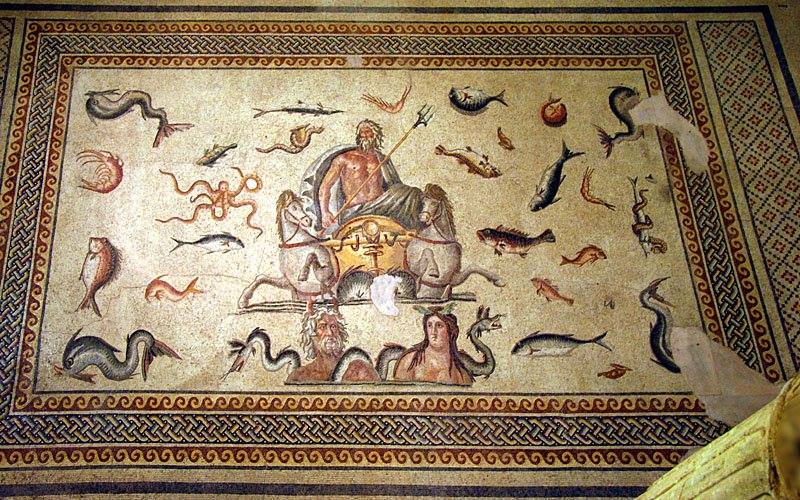Pythagoras turned geometrical philosophy into a form of liberal education by seeking its first principles in a higher realm of reality. Proclus.
In The Presocratic Philosophers, Kirk and Raven are clear that a teacher named Pythagoras did exist, flourishing around 530 BC:
"There can be no doubt that Pythagoras founded in Croton a sort of religious fraternity or order," they write, adding that Aristotle wrote about his circle as one of the "Italian schools" of philosophy.
Very little is known for certain about his teachings, or those of his successors, but the recurrent note is the unusual tension in his work, which appears to have interwoven three strands: (1) a highly abstract contemplative approach to theory, (2) a sense of the cosmos as a stable, orderly universe, and (3) a concern with catharsis, purification, which was especially linked with music. Kirk and Raven cite an ancient text:
The Pythagoreans, according to Aristoxenus, practised the purification of the body by medicine, that of the soul by music.The tension within what is considered characteristic of Pythagorean thought has to do with an effort to synthesize cold, rational, changeless mathematical clarity (space) with passionate and intense interest in things developing, moving, changing -- the marvel of the new (time).
. . . nihil est toto, quod perstet, in orbe. (177)
Cuncta fluunt, omnisque vagans formatur imago;
there is nothing in the whole universe that persists. Everything flows, and is formed as a fleeting image.If all we can possess are wandering (vagans) images, then, in truth, we can't hold on to truth. The philosopher here seems to be envisioning the world itself as something that can only be an image, and not a stable one -- the critique of knowledge as being ever contingent, limited, and mutable is no longer a critique of knowledge, but rather is in "fact" the world that we can know. The cave of Morpheus is less distant than we thought.
Adding up all this that can never be known yields a sum that is known never to change:
summa tamen omnia constant. (250)
the total sum is constant.

Ancient sources attribute the term Kosmos to Pythagoras -- the idea that there is order in the universe. Given such order, it seemed inevitable to the Greeks that there would be harmony. Pythagoras is believed to have originated the thought of "the music of the spheres." And according to other ancient sources, he was the first to use the term "philosopher."
The figure of Pythagoras brings together the difficult polarities of art and music, the realm of theory and the power of voice, Apollo and Dionysus. According to ancient comment, Pythagoras' initial effort to yoke these contraries broke apart after his death into two separate schools -- one tending toward the mystical, one toward the mathematical. It is this complication, this callida iunctura within Pythagoras, that would have appealed to Ovid. Here was a philosopher who sang the world as if the play of poetic making were not something said about the world, but rather something in and of the world about which philosophers attempt to speak.
If one were to believe the Pythagoreans, with the result that the same individual things will recur, then I shall be talking to you again sitting as you are now, with this pointer in my hand, and everything else will be just as it is now, and it is reasonable to suppose that the time then is the same as now. Porphyrius, Vita Pythagorae.

No comments:
Post a Comment